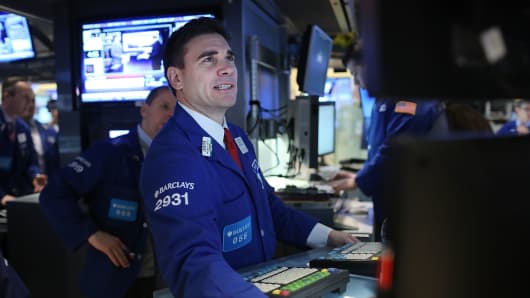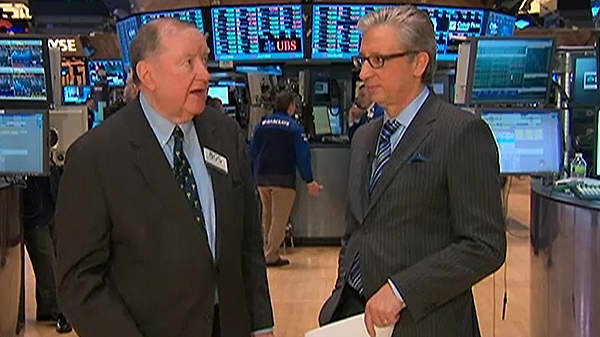As active managers have missed benchmarks while charging consistently higher fees, ETFs have exploded into a $1.4 trillion industry that is constantly growing.
Active managers are hoping that the drop in correlation and a market that has just broke into record territory on the Dow industrials will lure investors back to individual stocks and help performance. Five percent of all managers are missing their benchmarks by 5 percentage points or better, according to JPMorgan.
Hedge funds also have been having a rough year despite four consecutive months of positive returns. The group returned just 2.6 percent through the end of February, compared with the Standard & Poor's 500 gain of 6.6 percent through the same period, according to eVestment.
(Read More: Dow Breaks Record but Party Likely Won't Last)
"We've been waiting for this time to come for what seems like several years now," said Brian Lazorishak, senior portfolio manager at Chase Investment Counsel in Charlottesville, Va.
"Looking at individual companies, you're starting to see separation on a fundamental basis. You've got some areas of the economy doing better than others," he added. "That should translate into a little less correlation between individual companies. That should be a better environment for active versus passive management."
Still, the deck seems stacked against stock picking.
One measure of correlation, the CBOE S&P 500 Implied Correlation Index, has dropped 8 percent in 2013 and is down more than 30 percent over the past year.
But the slide has itself been correlated—falling when stocks rise and rising when stocks fall as investors continue to vacillate between risk-on and risk-off mode.
"We've been head-faked so many times on this," said Nicholas Colas, chief market strategist at ConvergEx. "It's really a liquidity-driven market based on Fed policy. Until that narrative stops being accurate, you're going to see structurally higher correlations than historical averages."
Fed bond buying has helped limit market gyrations, particularly lately when the CBOE Volatility Index has moved, except for a few brief spikes, in a tight range.
That in turn has reflected limited stock fluctuations and provided fewer chances for stock pickers to take advantage of mispriced companies.
"We know why this is happening—financial repression from the world's central banks," Steinmetz said.
(Read More: US Growth 'Modest' but Gradual: Fed Beige Book)
Steve Wood, chief market strategist at Russell Investments, sees some hope, though, in what could be peaking corporate earnings and a prolonged economic slowdown.
"As the earnings cycle matures and as top-line guidance becomes more diverse and challenged, security selection and active management are going to be increasingly important," he said.
Investors, then, will have to choose whether they want to bet on the risk of stock selection against the safety of indexing.
"There's a lot to be said for buying the indexes and ETFs and setting it and forgetting it," said Nadav Baum, executive vice president at BPU Investment Management in Pittsburgh. "Stock picking is a tough game."
Not if you have the right mindset and pick the right stocks, Steinmetz said.
"Stock picking is always going to be the way to get superior returns if you focus on picking great companies," he said. "That is the best way to add positive value over an index, as opposed to trying to get the macro timing right."





